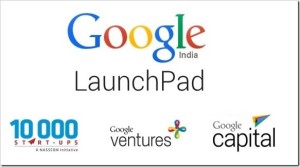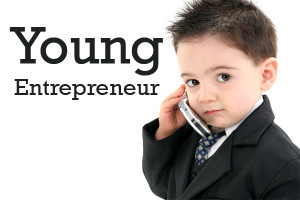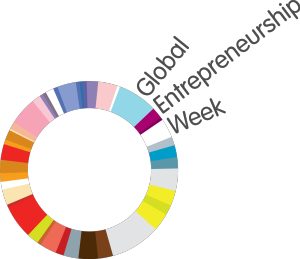 Few startup companies are able to become the perfect blend of profitable, unique, and philanthropic. Usually, they are just two of the three. However, some startups have created a product, and are driven by a mission, that helps them be all three. One such company is Proof Eyewear. This startup is run by three brothers from rural Idaho, who grew up around sawmills. Now, these brothers own a wooden eyewear company that has taken its mission all over the world.
Few startup companies are able to become the perfect blend of profitable, unique, and philanthropic. Usually, they are just two of the three. However, some startups have created a product, and are driven by a mission, that helps them be all three. One such company is Proof Eyewear. This startup is run by three brothers from rural Idaho, who grew up around sawmills. Now, these brothers own a wooden eyewear company that has taken its mission all over the world.
The company was initially begun with the desire to create eyeglasses using sustainable materials. Having come from a family of sawmill workers, they were already quite familiar with raw materials. They first experimented with a pair of wooden sunglasses. The concept only grew from there. Proof morphed from a company operated out of a garage to one operating all over the world, and they launched in 2010.
One of the most interesting things about this company is that it is managing to make money in a world filled with eyewear companies using plastic. It is doing this by branching out from wood to use other sustainable materials as well. For example, the company produces glasses made from recycled aluminum and cellulose acetate as well. These materials allow eyeglass frames to be shaped in a number of different ways, as opposed to the blocky frames that are made with wood.
While Proof excels at product development and fundraising, it also has delved deeply into entrepreneurial philanthropy. It has adopted a give-back policy in which a percentage of its profits is donated to eye-based nonprofits and camps all over the world. It also partners with other eye-based companies all over the world, ones that are also making revenue, to provide a philanthropic service. Furthermore, it funds trips to the countries in which its philanthropy is practiced for all employees. The founders of the company believes it is important for their employees to be deeply entrenched in the mission of the company. Therefore, anybody in the company can go see the work Proof is funding firsthand.
This has created a company culture of sustainability, closeness, and giving back to the community. No wonder Proof was able to start a new line via the popular crowdfunding platform, Kickstarter. What is more impressive is that this global organization was started on just $15,000 dollars. Each of the brothers donated $5,000 of their dollars to get Proof up and running.
Proof’s business model is one for which more startup companies should aim. Their perfect blend of product, profit, and philanthropy has helped them a great deal with fundraising, and will most likely keep them generating revenue into the foreseeable future.
 Google recently tested its startup mentorship program in Israel and is now shifting its focus to Indian startups. Due to the developing interest in Indian startups, Google has decided to implement its startup program, Launchpad, in India. Monday was the start of the first of four weeks long programs. So far, Launchpad has a shortlist of 20 startups and 1,450 venture capitalists to fund the projects. Most of these companies are in the education and healthcare industries Representatives from Google and other companies will mentor and coach developing startups looking to grow.
Google recently tested its startup mentorship program in Israel and is now shifting its focus to Indian startups. Due to the developing interest in Indian startups, Google has decided to implement its startup program, Launchpad, in India. Monday was the start of the first of four weeks long programs. So far, Launchpad has a shortlist of 20 startups and 1,450 venture capitalists to fund the projects. Most of these companies are in the education and healthcare industries Representatives from Google and other companies will mentor and coach developing startups looking to grow. The Chinese smartphone startup, Xiaomi, has raised $1.1 billion from venture capitalists in the last four years. The company has been valued at $45 billion. The company’s co-founder, Bin Lin, made the news public on Facebook. Xiaomi has surpassed Uber for the fastest growing startup in the world, and is currently ranked 3rd among global smartphone producers. Xiaomi attributes its continued success to their lower-cost products.
The Chinese smartphone startup, Xiaomi, has raised $1.1 billion from venture capitalists in the last four years. The company has been valued at $45 billion. The company’s co-founder, Bin Lin, made the news public on Facebook. Xiaomi has surpassed Uber for the fastest growing startup in the world, and is currently ranked 3rd among global smartphone producers. Xiaomi attributes its continued success to their lower-cost products. A recent article in Young Upstarts deliberates the developmental phase that every startup company goes through: taking the idea and implementing it into a real, tangible product that creates revenue. A lot of young entrepreneurs might turn to accelerator programs, venture capital, or angel investing. However, this leads to sacrificing equity and freedom at an early stage of their company, which isn’t necessarily ideal.
A recent article in Young Upstarts deliberates the developmental phase that every startup company goes through: taking the idea and implementing it into a real, tangible product that creates revenue. A lot of young entrepreneurs might turn to accelerator programs, venture capital, or angel investing. However, this leads to sacrificing equity and freedom at an early stage of their company, which isn’t necessarily ideal. Forbes recently came out with a group of new tech startups that have the edge in their own perspective emerging markets. Seedstars World, an affiliate venture capital firm to Seedstars, created this list of emerging markets and dominating startups associated with these markets. There were 19 startup companies mentioned in the article in varying emerging markets.
Forbes recently came out with a group of new tech startups that have the edge in their own perspective emerging markets. Seedstars World, an affiliate venture capital firm to Seedstars, created this list of emerging markets and dominating startups associated with these markets. There were 19 startup companies mentioned in the article in varying emerging markets.